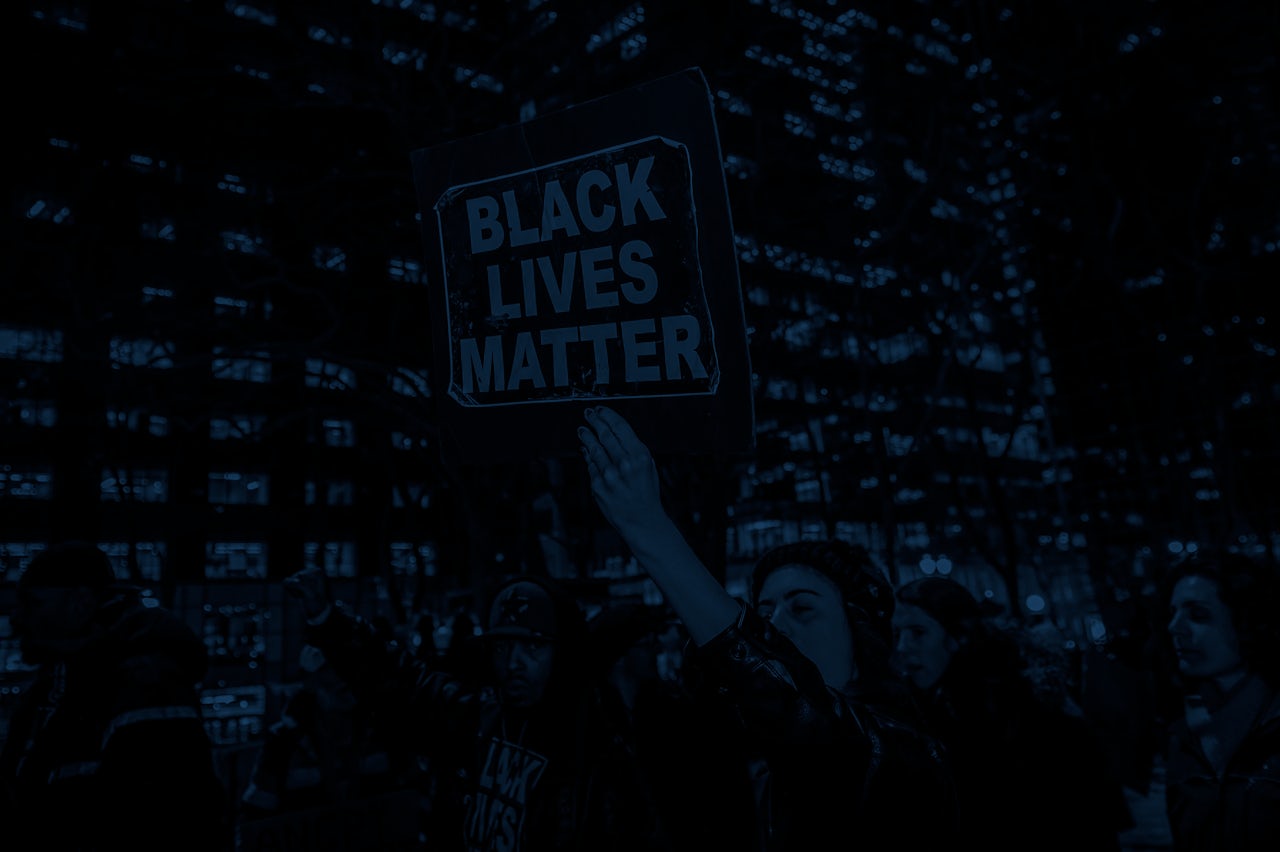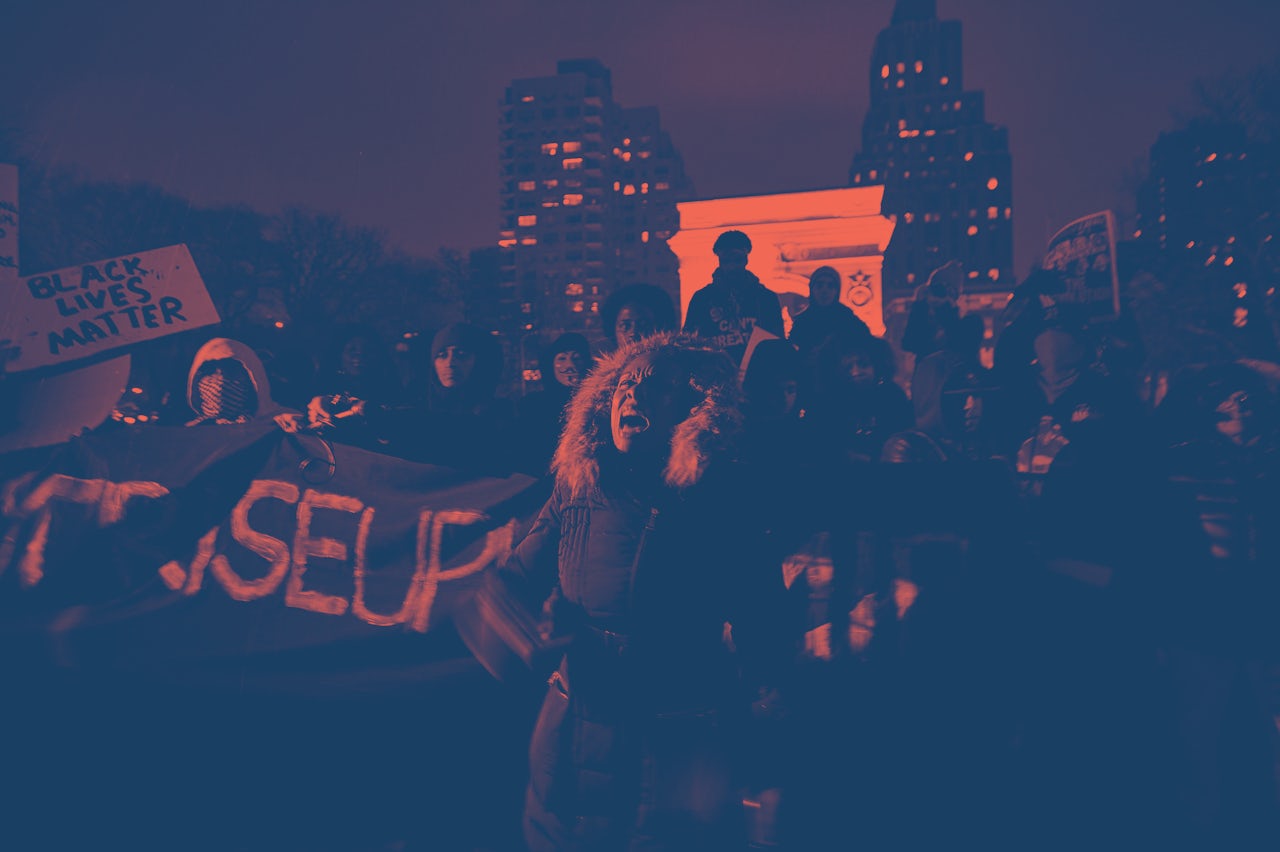The New York City Police Department is refusing to release information about the alleged high-tech surveillance of Black Lives Matter protesters, and civil rights activists are digging in for a fight that they say represents the power of a creeping police state.
Last month, The Outline reported that Arminta Jeffreys, an organizer with the grassroots group Millions March NYC, believed that police had used surveillance technology to intercept the signal from her phone and the phones of other activists who were protesting the decision by an Ohio grand jury not to indict the officers who shot and killed 12-year-old Tamir Rice.
International Mobile Subscriber Identity (or ISMI) catchers, commonly known as Stingrays, mimic cell phone towers and trick phones into interacting with them. They can intercept voice and text communications, drain batteries, and disrupt service. The NYPD does not acknowledge that it uses them, but the NYCLU reported in 2016 that the department had done so approximately 1,016 times between 2008 and May of 2015.
Jeffreys said she was walking with a group of activists over the Brooklyn Bridge when suddenly she was unable to send a text or make a call without her phone powering down. Others in the group experienced rapid battery drain, one demonstrator’s screen turned white, and similar allegations continue to emerge.
Whether the NYPD is allowed to conduct mass wiretapping of a constitutionally-protected peaceful protest is legally murky, but that’s not what activists are focused on right now. They just want the police to disclose what tactics were used — but the cops are refusing to do so, using an excuse that is normally reserved for situations where national security would be compromised.
A lawsuit filed on Tuesday by the New York Civil Liberties Union seeks information about the surveillance under public records laws, and alleges that police spied on and interfered with cell phones in even more instances than had been previously reported.
Jeffreys, along with fellow organizers Vienna Rye and Nabil Hassein, says it seemed like police were interfering with demonstrators’ phones at one December action for Eric Garner and Michael Brown and an April action for Freddie Gray, all of whom were killed by police; as well as during an April protest against Donald Trump, which took place at the New York State Republican Committee’s annual gala.
In October of last year, Jeffreys, Rye and Hassain filed a Freedom of Information Law request with the NYPD seeking records relating to these incidents. The police replied that it would “neither confirm nor deny the existence of records responsive to [the] FOIL request, as knowledge of the existence or nonexistence of such records would interfere with a law enforcement investigation, could impair the life and safety of others and would reveal confidential information.”
This is known as a “Glomar” response, named for the USNS Hughes Glomar Explorer, a salvage vessel used for a covert CIA program in the 1970s, the existence of which the agency would not confirm or deny. This response has typically been used to deny information requests due to national security or in instances where disclosing that a person was mentioned in law enforcement files would have a “stigmatizing connotation.”
“There would be no limit to the NYPD’s ability to cloak its conduct in secrecy.”
“The Glomar doctrine has historically been used in highly unusual national security circumstances involving federal agencies, not state or local law enforcement,” the NYCLU said in a statement Tuesday.
The lawsuit argues that if the NYPD is allowed to invoke the Glomar doctrine in response to FOIL requests about surveillance, “there would be no limit to the NYPD’s ability to cloak its conduct in secrecy.”
Earlier this year, two city council members introduced the Public Oversight of Surveillance Technology (POST) Act, which is attempting to force the NYPD to disclose all of the high-tech surveillance tools that it uses, along with how it shares and protects the information that it gathers.
New York is the highest-profile city engaging in secret police surveillance, but the issue is a national concern. An ACLU official told The Outline that approximately 17 other localities were working on legislation similar to the POST Act, and bills have passed in Seattle and Santa Clara, California. And the concerns of Black Lives Matter come in the context of a long history of government surveillance of activists from Martin Luther King Jr. to Deray Mckesson.
“New York City should be doing what it can to protect people’s right to engage in political protests,” Mariko Hirose, senior staff attorney at the NYCLU, said in a statement Tuesday. “The last thing the police department should be doing is finding new loopholes to conceal from activists whether or not they are interfering with protests and organizing.”

